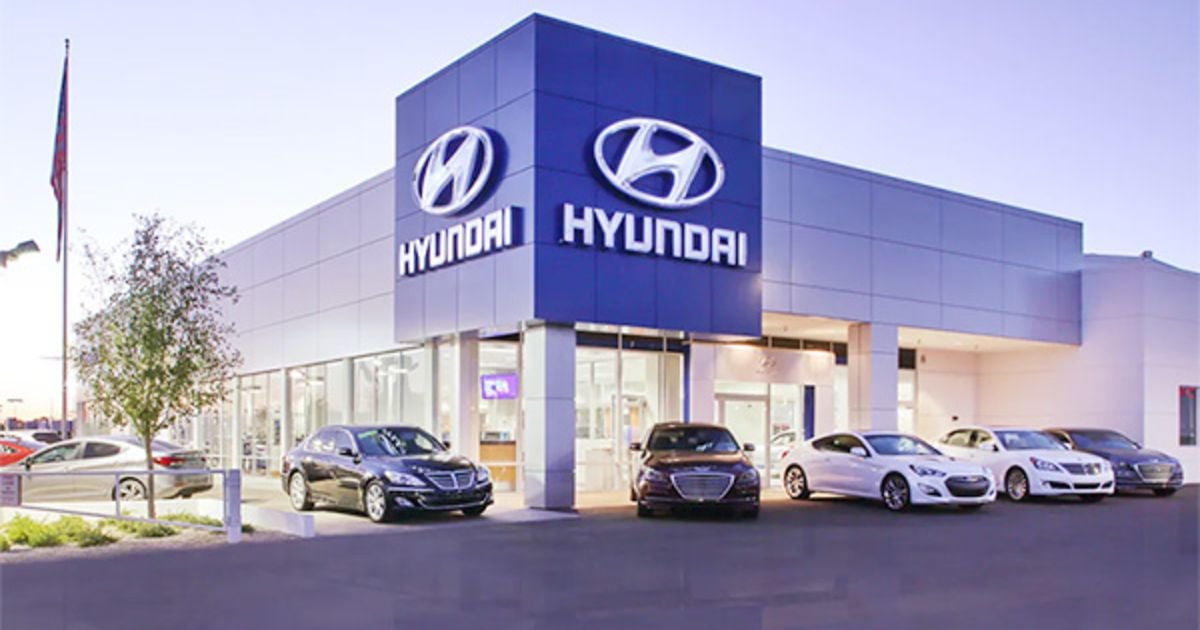
A federal jury has found two Napleton Automotive Group employees guilty of warranty fraud in a yearslong lawsuit between Hyundai Motor America and the dealership group’s West Palm Beach Hyundai store.
But Hyundai will not be awarded damages because it engaged in wrongdoing that gives the automaker “unclean hands,” the jury ruled Thursday.
The case goes back to November 2020 when Hyundai Motor America sued Napleton Automotive Group and some of its employees in federal court, alleging that they fraudulently collected warranty payments for unnecessary engine repairs. The complaint was filed in U.S. District Court in West Palm Beach, Fla.
Napleton Automotive Group was later dismissed as a defendant, but the group’s West Palm Beach Hyundai store — EFN West Palm Motor Sales — and employees remained defendants.
The jury found Gene Khaytin, former general manager of that store and Ernie Revuelta, the store’s current service director, guilty of fraud against Hyundai, but neither defendant will pay damages because of Hyundai’s “unclean hands” affirmation.
The unclean hands defense means “Hyundai committed an unconscionable act or engaged in reprehensible conduct that is directly related to the claims it has asserted; and that Defendants were personally injured by such conduct,” according to jury instructions from the court.
The verdict didn’t specify exactly what the jury deemed unconscionable.
“Whatever the jury thought that those two individuals did, it was far outweighed by what they found … which was reprehensible,” said Russell McRory, a partner at law firm ArentFox Schiff who represented the Napleton dealership and its employees.
A Hyundai spokesman said the automaker is disappointed that the jury did not award damages to Hyundai and is “reviewing and considering all available options moving forward.”
He said Hyundai delivered evidence that the dealership submitted fraudulent recall replacement claims.
“Such a scheme not only harms Hyundai but also affects our customers and the West Palm Community,” the spokesman said in a statement. “We are pleased that the jury found that two of the defendants committed the warranted fraud we presented.”
Napleton countersued Hyundai in August 2021, accusing the automaker of unfair vehicle allocation. The jury ruled against Napleton in relation to those claims.
“The jury recognized and agreed that Hyundai’s allocation of cars to West Palm Beach Hyundai was fair under all the circumstances and found in Hyundai’s favor on all counts,” the Hyundai spokesman said.
Warranty fraud?
From 2015 through 2019, Hyundai recalled certain Sonata, Santa Fe Sport, Tucson and Veloster models for potential engine failure and extended its powertrain warranty coverage beyond the original car buyer.
In Hyundai’s 2020 lawsuit, the automaker said that since at least 2016, defendants purchased certain Sonata and Santa Fe vehicles from auctions and filed fraudulent warranty claims on such vehicles to Hyundai. Hyundai would then reimburse them for the repair or would repurchase the vehicle. In 2017, the alleged scheme generated about $180,000 in profits for Napleton’s West Palm Beach dealership.
The countersuit by Napleton’s West Palm Beach Hyundai store accused Hyundai of fraud and violations of Florida dealership law. Napleton said that Hyundai’s Accelerate dealership image program, incentive programs and Genesis vehicle distribution requirements violated Florida law and accused Hyundai of price discrimination.
The countersuit also claimed Hyundai originally sued Napleton Automotive to divert attention from its own engine failure “debacle” and “to harass West Palm, ruin its reputation and damage its business. Hyundai is on a mission to take away all of the Napleton organization’s Hyundai stores affiliated with West Palm.” Hyundai at the time called those counterclaims “frivolous.”
The group also claimed Hyundai based dealer margins on sales performance objectives and facility requirements and gave inconsistent per-vehicle incentives to Hyundai dealers throughout Florida.
Melissa Burden, Miranda Dunlap and Paige Hodder contributed to this report.